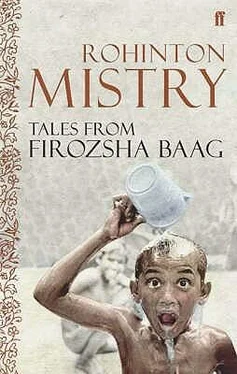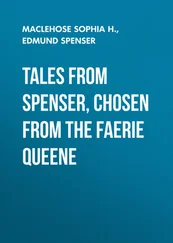Rohinton Mistry - Tales From Firozsha Baag
Здесь есть возможность читать онлайн «Rohinton Mistry - Tales From Firozsha Baag» весь текст электронной книги совершенно бесплатно (целиком полную версию без сокращений). В некоторых случаях можно слушать аудио, скачать через торрент в формате fb2 и присутствует краткое содержание. Год выпуска: 2006, Издательство: Faber & Faber, Жанр: Современная проза, на английском языке. Описание произведения, (предисловие) а так же отзывы посетителей доступны на портале библиотеки ЛибКат.
- Название:Tales From Firozsha Baag
- Автор:
- Издательство:Faber & Faber
- Жанр:
- Год:2006
- ISBN:нет данных
- Рейтинг книги:3 / 5. Голосов: 1
-
Избранное:Добавить в избранное
- Отзывы:
-
Ваша оценка:
- 60
- 1
- 2
- 3
- 4
- 5
Tales From Firozsha Baag: краткое содержание, описание и аннотация
Предлагаем к чтению аннотацию, описание, краткое содержание или предисловие (зависит от того, что написал сам автор книги «Tales From Firozsha Baag»). Если вы не нашли необходимую информацию о книге — напишите в комментариях, мы постараемся отыскать её.
Tales From Firozsha Baag — читать онлайн бесплатно полную книгу (весь текст) целиком
Ниже представлен текст книги, разбитый по страницам. Система сохранения места последней прочитанной страницы, позволяет с удобством читать онлайн бесплатно книгу «Tales From Firozsha Baag», без необходимости каждый раз заново искать на чём Вы остановились. Поставьте закладку, и сможете в любой момент перейти на страницу, на которой закончили чтение.
Интервал:
Закладка:
Not expecting Jehangir’s visit, Mrs. Mody stood blocking the doorway and said: “Yes?” Meaning, what nuisance now?
“Burjor Uncle asked me to come at ten o’clock.”
“Asked you to come at ten o’clock? What for?”
“He just said to come at ten o’clock.”
Grudgingly, Mrs. Mody stepped aside. “Come in then. Sit down there.” And she indicated the specific chair she wanted him to occupy, muttering something about a baap who had time for strangers’ children but not for his own son.
Jehangir sat in what must have been the most uncomfortable chair in the room. This was his first time inside the Modys’ flat, and he looked around with curiosity. But his gaze was quickly restricted to the area of the floor directly in front of him when he realized that he was the object of Mrs. Mody’s watchfulness.
Minutes ticked by under her vigilant eye. Jehangir was grateful when Dr. Mody emerged from the bedroom. Being Sunday, he had eschewed his usual khaki half-pants for loose and comfortable white pyjamas. His sudra hung out over it, and he strode vigorously, feet encased in a huge pair of sapaat . He smiled at Jehangir, who happily noted the crow’s-feet appearing at the corners of his eyes. He was ushered into Dr. Mody’s room, and man and boy both seemed glad to escape the surveillance of the woman.
The chairs were more comfortable in Dr. Mody’s room. They sat at his desk and Dr. Mody opened a drawer to take out a large book.
“This was the first stamp album I ever had,” said Dr. Mody. “It was given to me by my Nusserwanji Uncle when I was your age. All the pages were empty.” He began turning them. They were covered with stamps, each a feast of colour and design. He talked as he turned the pages, and Jehangir watched and listened, glancing at the stamps flying past, at Dr. Mody’s face, then at the stamps again.
Dr. Mody spoke not in his usual booming, jovial tones but softly, in a low voice charged with inspiration. The stamps whizzed by, and his speech was gently underscored by the rustle of the heavily laden pages that seemed to turn of their own volition in the quiet room. (Jehangir would remember this peculiar rustle when one day, older, he’d stand alone in this very room, silent now forever, and turn the pages of Nusserwanji Uncle’s album.) Jehangir watched and listened. It was as though a mask had descended over Dr. Mody, a faraway look upon his face, and a shining in the eyes which heretofore Jehangir had only seen sad with despair or glinting with anger or just plain and empty, belying his constant drollery. Jehangir watched, and listened to the euphonious voice hinting at wondrous things and promises and dreams.
The album on the desk, able to produce such changes in Dr. Mody, now worked its magic through him upon the boy. Jehangir, watching and listening, fascinated, tried to read the names of the countries at the top of the pages as they sped by: Antigua … Australia … Belgium … Bhutan … Bulgaria … and on through to Malta and Mauritius … Romania and Russia … Togo and Tonga … and a final blur through which he caught Yugoslavia and Zanzibar.
“Can I see it again?” he asked, and Dr. Mody handed the album to him.
“So what do you think? Do you want to be a collector?”
Jehangir nodded eagerly and Dr. Mody laughed. “When Nusserwanji Uncle showed me his collection I felt just like that. I’ll tell your mother what to buy for you to get you started. Bring it here next Sunday, same time!”
And next Sunday Jehangir was ready at nine. But he waited by his door with a Stamp Album For Beginners and a packet of 100 Assorted Stamps — All Countries. Going too early would mean sitting under the baleful eyes of Mrs. Mody.
Ten o’clock struck and the clock’s tenth bong was echoed by the Modys’ doorchimes. Mrs. Mody was expecting him this time and did not block the doorway. Wordlessly, she beckoned him in. Burjor Uncle was ready, too, and came out almost immediately to rescue him from her arena.
“Let’s see what you’ve got there,” he said when they were in his room. They removed the cellophane wrapper, and while they worked Dr. Mody enjoyed himself as much as the boy. His deepest wish appeared to be coming true: he had at last found someone to share his hobby with. He could not have hoped for a finer neophyte than Jehangir. His young recruit was so quick to learn how to identify and sort stamps by countries, learn the different currencies, spot watermarks. Already he was skilfully folding and moistening the little hinges and mounting the stamps as neatly as the teacher.
When it was almost time to leave, Jehangir asked if he could examine again Nusserwanji Uncle’s album, the one he had seen last Sunday. But Burjor Uncle led him instead to a cupboard in the corner of the room. “Since you enjoy looking at my stamps, let me show you what I have here.” He unlocked its doors.
Each of the cupboard’s four shelves was piled with biscuit tins and sweet tins: round, oval, rectangular, square. It puzzled Jehangir: all this bore the unmistakable stamp of the worthless hoardings of senility, and did not seem at all like Burjor Uncle. But Burjor Uncle reached out for a box at random and showed him inside. It was chock-full of stamps! Jehangir’s mouth fell open. Then he gaped at the shelves, and Burjor Uncle laughed. “Yes, all these tins are full of stamps. And that big cardboard box at the bottom contains six new albums, all empty.”
Jehangir quickly tried to assign a number in his mind to the stamps in the containers of Maghanlal Biscuitwalla and Lokmanji Mithaiwalla, to all of the stamps in the round tins and the oval tins, the square ones and the oblong ones. He failed.
Once again Dr. Mody laughed at the boy’s wonderment. “A lot of stamps. And they took me a lot of years to collect. Of course, I am lucky I have many contacts in foreign countries. Because of my job, I meet the experts from abroad who are invited by the Indian Government. When I tell them about my hobby they send me stamps from their countries. But no time to sort them, so I pack them in boxes. One day, after I retire, I will spend all my time with my stamps.” He paused, and shut the cupboard doors. “So what you have to do now is start making lots of friends, tell them about your hobby. If they also collect, you can exchange duplicates with them. If they don’t, you can still ask them for all the envelopes they may be throwing away with stamps on them. You do something for them, they will do something for you. Your collection will grow depending on how smart you are!”
He hesitated, and opened the cupboard again. Then he changed his mind and shut it — it wasn’t yet time for the Spanish dancing-lady stamp.
III
On the pavement outside St. Xavier’s Boys School, not far from the ornate iron gates, stood two variety stalls. They were the stalls of Patla Babu and Jhaaria Babu . Their real names were never known. Nor was known the exact source of the schoolboy inspiration that named them thus, many years ago, after their respective thinness and fatness.
Before the schoolboys arrived in the morning the two would unpack their cases and set up the displays, beating the beggars to the choice positions. Occasionally, there were disputes if someone’s space was violated. The beggars did not harbour great hopes for alms from schoolboys but they stood there, nonetheless, like mute lessons in realism and the harshness of life. Their patience was rewarded when they raided the dustbins after breaks and lunches.
At the end of the school day the pavement community packed up. The beggars shuffled off into the approaching dark, Patla Babu went home with his cases, and Jhaaria Babu slept near the school gate under a large tree to whose trunk he chained his boxes during the night.
Читать дальшеИнтервал:
Закладка:
Похожие книги на «Tales From Firozsha Baag»
Представляем Вашему вниманию похожие книги на «Tales From Firozsha Baag» списком для выбора. Мы отобрали схожую по названию и смыслу литературу в надежде предоставить читателям больше вариантов отыскать новые, интересные, ещё непрочитанные произведения.
Обсуждение, отзывы о книге «Tales From Firozsha Baag» и просто собственные мнения читателей. Оставьте ваши комментарии, напишите, что Вы думаете о произведении, его смысле или главных героях. Укажите что конкретно понравилось, а что нет, и почему Вы так считаете.












